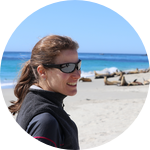About This Project
Urban wildlife can harbor and transmit many diseases that have the potential to affect humans, domestic pets and other wildlife species. Unfortunately, little is known about the pathogens of wild mammals in and around Los Angeles County. We are conducting a disease survey of five common mammal species that have the potential to carry and spread pathogens that impact the health of humans, domestic pets and other wildlife.
Ask the Scientists
Join The DiscussionWhat is the context of this research?
To gain an understanding of wild mammal population health in the Los Angeles region, we are conducting a pathogen survey of five common mammal species that have the potential to carry zoonoses, or diseases that can be transmitted from animals to humans. Zoonoses are responsible for most emerging infectious diseases. We are focused on Leptospira bacteria that causes the disease leptospirosis, which can be transmitted from wildlife reservoirs to humans or domestic pets. Leptospira is considered the most widespread zoonotic disease in the world, and is potentially increasing in California due to transmission from domestic animals and wildlife. Identifying which wildlife species carry this bacteria is important because it can affect pet and human health.
What is the significance of this project?
This study will provide an initial assessment of pathogens in wild mammals throughout LA County, including Leptospira bacteria. After identifying species and areas with higher levels of exposure (more antibodies), we can target them to test for animals with active infections (using PCR to detect Leptospira DNA), as infected animals can transmit the bacteria to other individuals or species. We will also try to get bacterial genetics from target animals to help us figure out local transmission patterns. Results will inform local wildlife, veterinary and public health agencies about infections and transmission potential in these wild mammal populations.
What are the goals of the project?
We are trying to identify which wildlife populations are affected by zoonotic diseases such as Leptospira bacteria in the Los Angeles region. Funds received will be used to test blood samples for Leptospira antibodies, indicating exposure in local wildlife (coyotes, raccoons, skunks, opossums and squirrels). Wildlife samples are currently being collected through local collaborations with wildlife and animal control agencies. These samples will be assessed for fecal pathogens and population genetics (covered by other funding sources), but we still need additional funding to assess antibodies to Leptospira bacteria. This will help us to target animals for infection testing and figure out which species potentially pose a risk to pets and humans.
Budget
This budget will cover the cost of testing 175 wildlife blood samples for Leptospira antibodies, which indicate exposure to this pathogenic bacteria. This will allow us to test at least 35 samples per species, providing us with critical data to help us understand which wildlife species are affected by this bacteria and how patterns of exposure vary across this diverse urban ecosystem. We will pair this exposure data with tests that look for Leptospira DNA in the urinary tract (PCR tests funded by another grant). We will also record any clinical signs observed in each animal (e.g. jaundice), though reservoir hosts are often asymptomatic. We have additional funding to cover the cost of sampling supplies and fecal pathogen testing (e.g. Giardia, Salmonella). All pathogen test results will be paired with host genetics to increase our knowledge of genetic diversity and connectivity, providing a more comprehensive picture of wild mammal population health in the LA region.
Endorsed by
 Project Timeline
Project Timeline
We have 100 blood samples already collected (project goal: 175+). These samples will be analyzed by the end of 2018, and the remaining samples will be collected and analyzed by the end of 2019.
Aug 21, 2018
Project Launched
Dec 31, 2018
Analyze antibodies in existing serum samples
Aug 31, 2019
Collect and analyze additional serum samples from local wildlife
Dec 31, 2019
Summarize and map the occurrence of wildlife pathogens, and share all information with local wildlife and public health officials
Meet the Team
Team Bio
I am working with an amazing, diverse team of professors and undergraduate research assistants at UCLA. If you'd like to learn more information about the rest of the team, please click here!
Sarah Helman
As a veterinarian and wildlife lover, I am incredibly excited to be researching wildlife health and ecology in the greater Los Angeles region. After obtaining my undergraduate degree from Boston University in 2006 (B.A. Biology, specialization in ecology & conservation biology), I went on to veterinary school at the University of Edinburgh, Scotland (class of 2010). After graduation I worked as a small animal veterinarian in Queensland, Australia, where I volunteered with a local sea turtle rehabilitation organization and increased my interests in coastal wildlife health and conservation ecology. I decided to pursue a PhD in research focusing on wildlife health, and found the perfect fit for this in the James Lloyd-Smith zoonotic disease lab at UCLA. Since then I have utilized my background in ecology and veterinary medicine to research wildlife health and disease ecology along the California coast. After finishing my PhD in 2022, I started a 2-year postdoctoral research fellowship at the UCLA La Kretz Center for California Conservation Science, focused on how diet and rodenticide exposure influence local coyote health and ecology. These surveys are a critical step in identifying the prevalence of diseases in different mammal populations and understanding factors that impact diseases in wildlife, and results will directly inform wildlife, veterinary and public health agencies. I'm extremely grateful to be working on such an exciting project with an amazing team of collaborators and fantastic undergraduate students (the future doctors and scientists of the world) as we continue to learn more about the health and ecology of local wildlife populations.
Thanks for your interest!!
Lab Notes
Nothing posted yet.
Project Backers
- 26Backers
- 101%Funded
- $3,531Total Donations
- $135.81Average Donation


